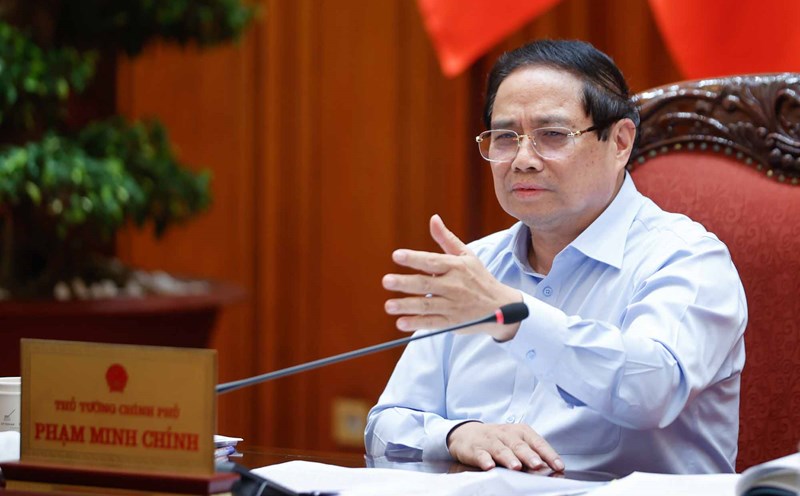On the morning of May 20, Politburo member and Prime Minister Pham Minh Chinh chaired a conference to promote public investment growth momentum in 2025; with the goal of disbursing 100% of public investment capital in 2025 (previous target was 95%).
Speaking at the opening of the conference, the Prime Minister said that we are determined to renew the 3 traditional growth drivers including investment, consumption, and export; promote new growth drivers including science and technology, innovation, digital transformation, circular economy, knowledge economy, and related drivers of the private economy.
Promoting new growth drivers requires time, and if there is a delay, it must consolidate and promote traditional growth drivers.
However, currently, consumption and export drivers are facing many difficulties, we are determined to diversify markets, products, and supply chains but have not yet promoted immediate efficiency.
Therefore, in traditional growth drivers, investment growth drivers play a very important role, including public investment, FDI investment, private investment... Public investment is identified as leading private investment, activating all resources for development.
Reviewing the results of public investment in the first months of the year, including 37/47 ministries, agencies and 27/63 localities with disbursement rates below the national average, the Prime Minister suggested clarifying this issue, finding the causes, pointing out difficulties, obstacles, bottlenecks, and responsibilities of ministries and branches.
"Why are the same conditions and policies not good in some places? Is it due to people or the leader?" - the Prime Minister raised the issue.
The Prime Minister requested the Ministry of Finance to compile statistics on ministries, branches and localities that are slow to disburse to re-evaluate cadres; those that do well are rewarded, and those that do not do well must be handled.
At the same time, learn from experience in leadership, direction, and implementation at all levels and sectors, especially leaders, "catching the right path, the right disease" to have appropriate solutions.
There are principles and regular measurement tools to urge, remind, and promote the role of the Prime Minister's working groups.
The Prime Minister also requested leaders of Party committees, authorities at all levels, cadres and Party members to think, study, continue to review, propose amendments to institutions and policies, and remove obstacles.
According to the Prime Minister, it is necessary to review laws related to budgets and bidding, because in reality, private enterprises often disburse and implement projects very quickly.
All levels from the central to local levels must resolutely participate, make more efforts and be more active, assign "clear people, clear work, clear responsibilities, clear progress, clear results, clear authority", demonstrate a sense of responsibility towards the country and work, not leaving the situation of "having money but not being able to spend".
The Prime Minister emphasized the need to strengthen decentralization and delegation of power to localities along with resource allocation, improving implementation capacity, strengthening inspection and supervision, with the spirit of "locality decides, locality does, locality is responsible".
Ministries, branches and central agencies focus on performing state management tasks, not doing specific things. State-owned corporations and groups must also be proactive in promoting investment.








